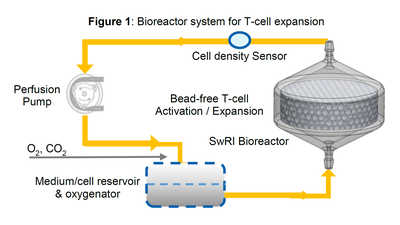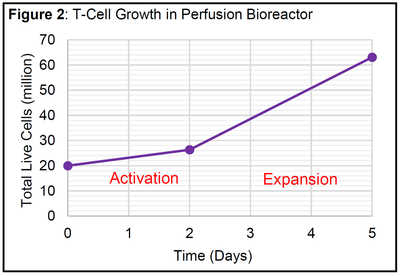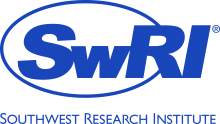A NOVEL BEADS-FREE CONTINUOUS T-CELL EXPANSION BIOREACTOR FOR CANCER IMMUNOTHERAPY
BACKGROUND
018810-FIG1-TCELL-MANUFACTURING-SYSTEM.JPG
 Figure 1: Novel SwRI-developed bead-free and perfusion-based, closed-loop T-cell manufacturing system using an SwRI-proprietary 3D bioreactor.
Figure 1: Novel SwRI-developed bead-free and perfusion-based, closed-loop T-cell manufacturing system using an SwRI-proprietary 3D bioreactor.
CAR T-cell based cancer immunotherapy represents a revolution in cancer treatment by using a patient’s own immune cells to cure cancer. In 2017, the FDA approved the first two CAR T-cell therapies. Hundreds more CAR T-cell therapies are currently in clinical trial. Despite the success of CAR T-cell therapy, the current T-cell manufacturing process developed in universities 10–20 years ago is multi-staged and labor intensive, requiring a high-class clean room to prevent contamination during manufacturing. These factors contribute to the high cost of CAR T-cell therapy which is approximately $0.5 million per treatment. Cost is a significant bottleneck to delivering CAR T-cell therapy.
APPROACH
018810-FIG2-BIOREACTOR-GRAPH.JPG
 Figure 2: Prototype of the SwRI-developed bioreactor.
Figure 2: Prototype of the SwRI-developed bioreactor.
In this project, SwRI has developed a novel bead-free and perfusion-based, closed-loop T-cell manufacturing system using an SwRI-proprietary 3D bioreactor (see Figure 1). The-3D printed bioreactor is low cost and easily rescaled for fabrication based on requirements. The bioreactor facilitates continuous perfusion and full automation. This is promising for developing it into a turn-key system that can be used in hospital settings for individual patient T-cell therapies. This innovative bioreactor system is expected to reduce several aspects of production costs associated with manufacturing T-cells.
ACCOMPLISHMENTS
In this study, SwRI developed prototypes of the novel bioreactor and demonstrated the feasibility of using a beads-free bioreactor for T-cell activation and expansion based on continuous perfusion.

